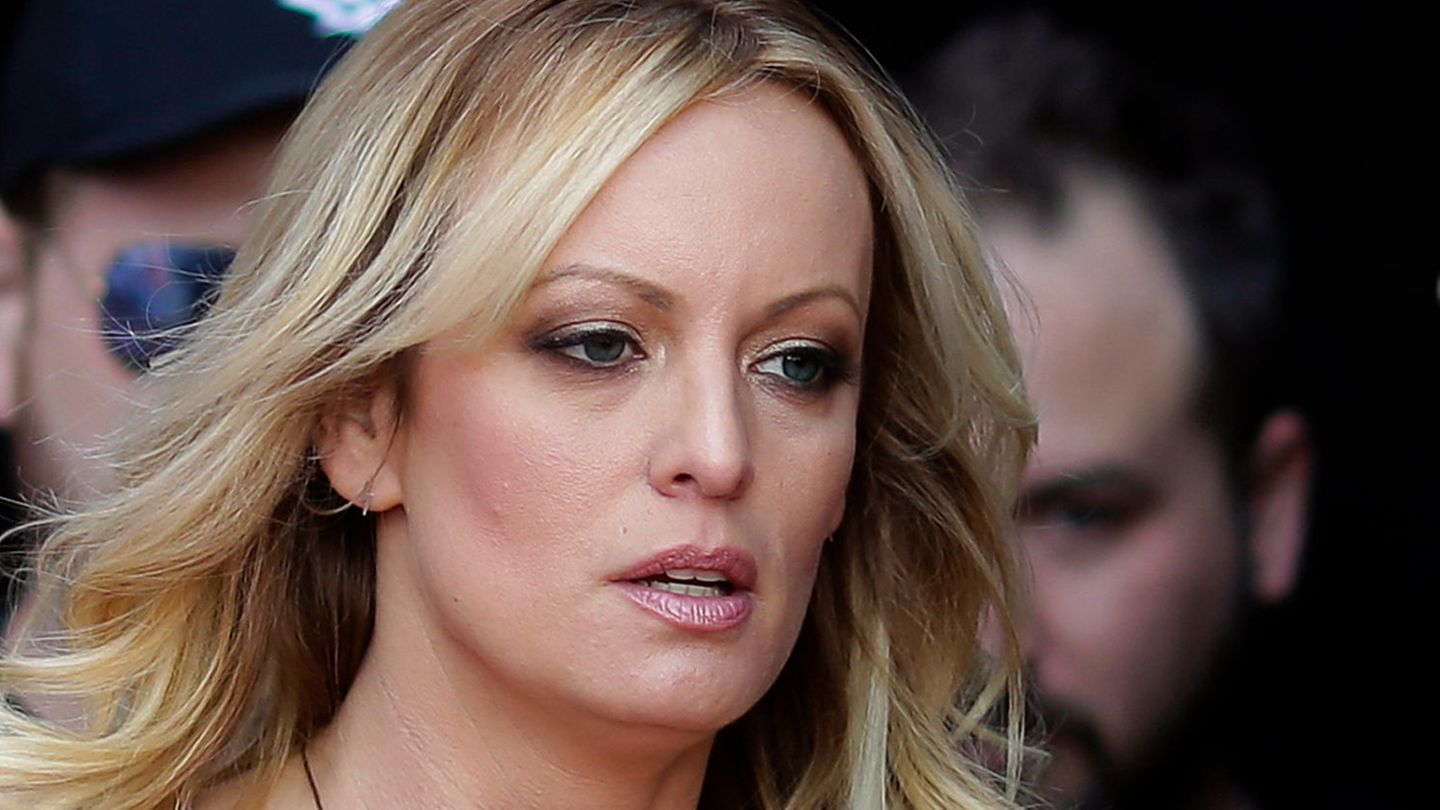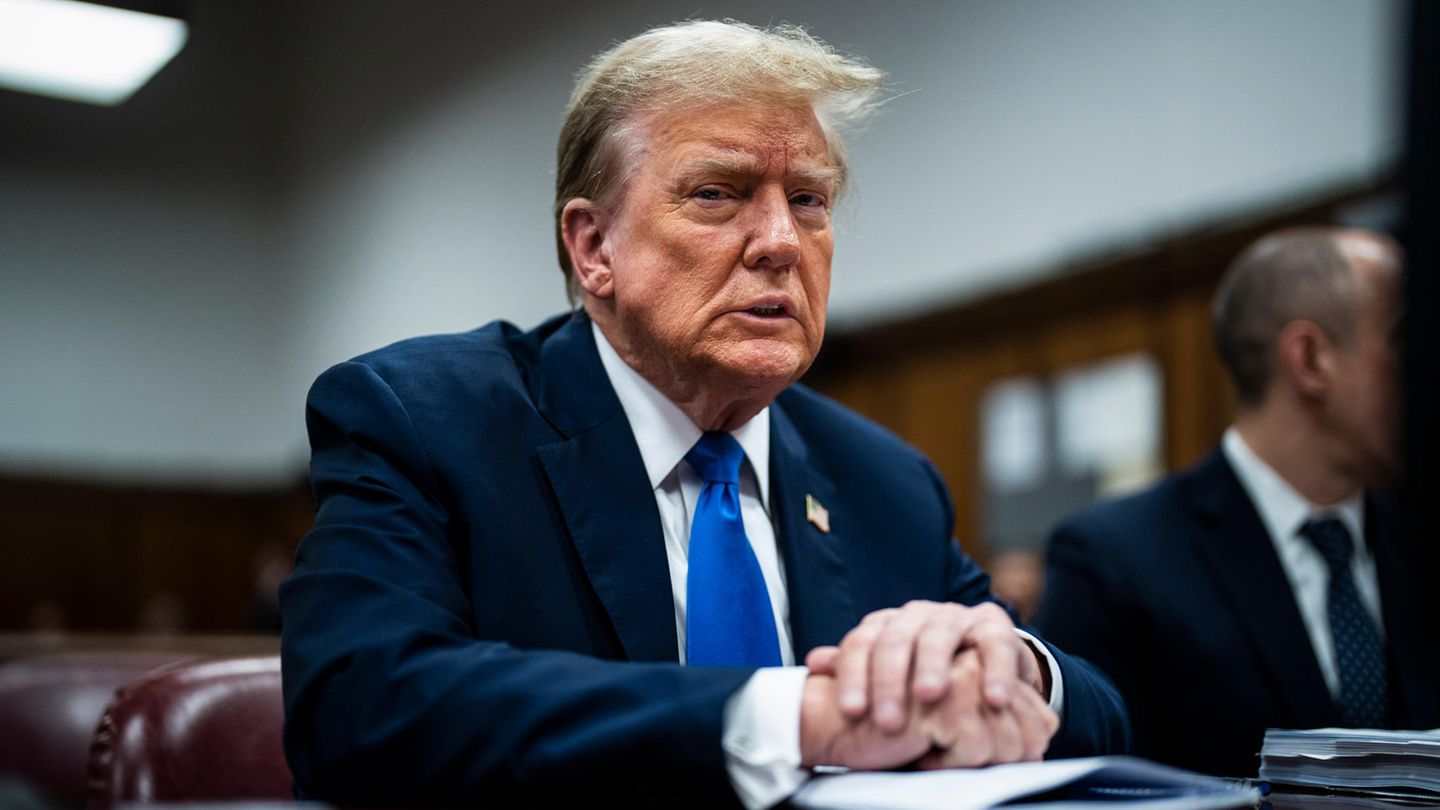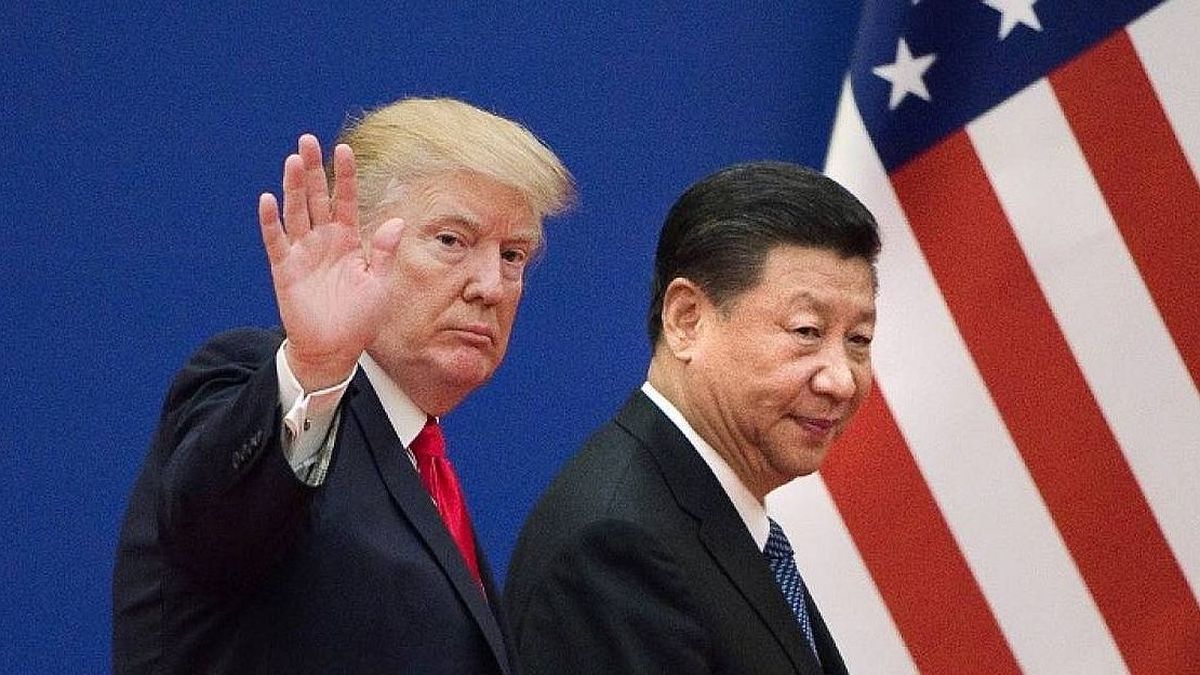analysis
Government vs. Justice: Who will win the power struggle?
Copy the current link
Donald Trump’s second term in office will be a trial by fire for the US judiciary. They also have to fear for their independence in parts of Europe. Can the third power save itself in the state?
You have to give Donald Trump one thing: He is not just a man of words, but a man of actions. Long before his inauguration, he railed against the political decisions of his predecessor Joe Biden. As president, he would reverse all decisions.
Now Trump is implementing what he promised.
As the new old US president, he needed only minutes to issue a decree pardoning hundreds of convicted Capitol stormers, stripping people with a migrant background of the right to US citizenship at birth, lifting the ban on environmentally harmful oil drilling or restricting the rights of the LGBTQ community (more Resolutions can be found here.) Donald Trump governed on his first day in office, bypassing parliament and the courts.
Although decrees are not enshrined in the US Constitution, they are permissible and common in US politics – as long as they remain within the framework of applicable laws. So Trump’s flood of decrees is not unusual. But it shows how little the US President cares about law and order. Regardless of whether they are contestable or not: Trump simply threw the decisions out into the world without considering the consequences.
But there are. For the global community, which irritated and angered Trump even before his inauguration. For millions of US citizens who now fear for their future in the country. For the courts, which may not be able to stop the most powerful man in the world, but will have to clean up after him in the years to come.
The US judiciary’s fight for independence against Trump
Shortly after Trump’s inauguration, several civil rights groups filed a lawsuit against the abolition of birthright. It is possible that a court will overturn Trump’s decision, because “birthright citizenship” is anchored in the 14th Amendment to the US Constitution.
However, things are likely to be more complicated when it comes to the rights of trans people. Trump officially only wants to accept two genders – male and female. “So far, the constitution has not provided an answer as to whether trans people should be treated equally,” says Russell Miller in an interview with the star. The lawyer teaches, among other things, constitutional law at the Washington and Lee School of Law in Virginia and expects the courts to fight for their ideological independence in the next four years. Trump’s inauguration could have been the starting signal.
Trump thinks little or nothing of the judiciary. He demonstrated his contempt repeatedly in courtrooms and on the platforms X and Truth Social, where he . Fines didn’t silence him, they made him even more angry.
What remains of Trump’s legal problems

The Stormy Daniels case
It was only on January 10th, ten days before Trump’s return to the White House, that Judge Merchan announced the sentence: he confirmed the jury’s guilty verdict and issued a verdict Trump, however, into “unconditional impunity”
© Markus Schreiber / Picture Alliance
Back
Further
His insults to judges and lawyers could be part of a populist textbook on verbal attacks and intimidation against the judiciary. “Depending on the system, populists try to act against the judiciary in different ways. This works not only on the government bench, but also from the opposition bench,” says Anna-Mira Brandau, who researches the fights between the judiciary and populist actors in Germany. But Donald Trump as president will no longer be content with verbal attacks.
lackeys to power
The judiciary as a plaything for the Republicans – this is particularly easy in the USA. The US President also has a say in the Ministry of Justice. “The Founding Fathers were clear that the judiciary would be the weakest and least dangerous branch of government,” says US legal expert Miller.
US presidents actually stay out of the Justice Department’s criminal investigations. It is unlikely that Trump will stay true to this line. The US President has never officially said that he wants to subjugate the judiciary. But there is increasing evidence of this: Agenda 2025, a plan by conservative US politicians, suggests that Trump wants to at least instrumentalize the judiciary. The master plan calls for a centralized government policy under which the White House controls all federal agencies, including the Justice Department, and replaces existing staff with loyal, conservative followers.
The first steps have already been taken: Trump wants abortion opponent and right-wing foreign politician Matt Gaetz from Florida to head the Justice Department. Before his inauguration, the Republican also announced that he would appoint three of his personal criminal defense attorneys as attorneys general and their deputies.
And then there is the Unitary Executive Doctrine, a conservative theory that has been controversial for years and that gives all power to the US President. US legal expert Miller assumes that “Trump will test the limits of this and also redefine the priorities of the justice system.” Unlike in Germany, in the USA the federal government can enforce federal policy through the Ministry of Justice. “Trump now has broad authority to determine and direct federal policy and to command this large federal bureaucratic apparatus.” If Trump had his way, the judges would be primarily concerned with migration issues. Half of Americans already expect the .
Trump’s actions and plans are an example of how populists around the world abuse legal means to undermine the independent judiciary. Lawyers speak of selective application of the law. Resolutions are applied in such a way that they serve political goals and hit ideological opponents, while maintaining the appearance of democracy.
US legal expert Miller therefore believes that the rule of law is in crisis, not only in the USA.
Is the power of the judiciary diminishing in populist times?
In Europe, the conservative Polish government and the Polish government worked together for years to paralyze the justice system until the change of power in December 2023and in Hungary, Prime Minister Viktor Orbán undermined the power of the Constitutional Court.
The one passed by the EU in 2020 was actually intended to prevent abuse of the judiciary. The EU Commission withdrew all aid funds from Hungary due to violations of the rule of law. But the damage has been done and legal scholars are also observing tendencies in Germany to undermine the rule of law.
“At the moment the German judiciary is still steadfast, but there are gateways,” says legal scholar Anna-Mira Brandau, referring to the AfD in Thuringia. There, around the failed constitutive session of the state parliament in September last year, fears suddenly arose that the former president might oppose a decision by the state constitutional court. “We have never seen a situation like this in Germany because democracies rely on the executive and legislative branches of government to bow to the judiciary in the final instance.”
In Germany, the Constitution Blog, a forum on legal topics and questions, explores how resilient the German judiciary really is against populist attacks and which legal weaknesses can and must be improved. “But it remains an idealistic misconception that the judiciary and our entire constitutional order can be completely secured through laws,” says Brandau. That’s why the constitutional blog also offers information about anti-democratic attacks on the judiciary.
Because in the end it is the judiciary itself that decides whether it allows itself to be taken over by a government or not. Example: Argentina: Between 2007 and 2015, the government tried to take aggressive action against judges with criminal charges. But the Supreme Court was not deterred. Disciplinary proceedings against judges were also on the agenda in Poland. But because the justice system held together, the complaints did not go through.
How quickly the jurisprudence can be submitted depends, among other things, on the judicial system. Conditions in the US favor Donald Trump. But he won’t be able to change the judiciary overnight. “This only works with the tactic of 1,000 needle pricks,” says Brandau.
It decides for itself whether the judiciary becomes a toothless tiger. The highest US judge, John Roberts, prepared the judiciary for stormy times two weeks before Donald Trump’s inauguration. So far, the courts’ decisions, whether popular or not, have always been accepted, he explained. This acceptance is now being replaced by open disregard. The courts would have to defend themselves against this.
Source: Stern
I have been working in the news industry for over 6 years, first as a reporter and now as an editor. I have covered politics extensively, and my work has appeared in major newspapers and online news outlets around the world. In addition to my writing, I also contribute regularly to 24 Hours World.






